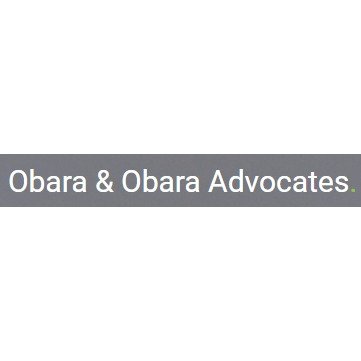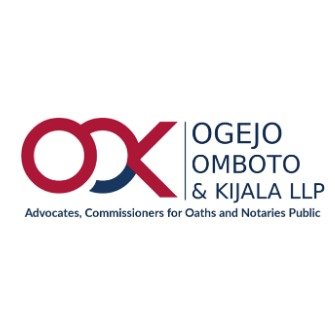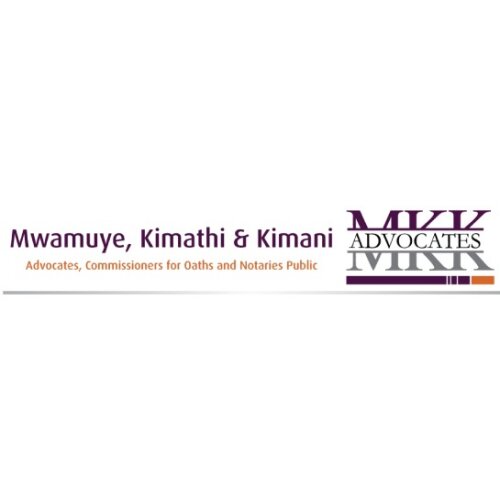Best Foreclosure Lawyers in Kisumu
Share your needs with us, get contacted by law firms.
Free. Takes 2 min.
Free Guide to Hiring a Real Estate Lawyer
List of the best lawyers in Kisumu, Kenya
About Foreclosure Law in Kisumu, Kenya
The foreclosure process in Kisumu, Kenya follows the general Kenyan legal framework under the Banking Act, which gives banks the legal right to foreclose on a property if a borrower defaults on their loan payments. The process involves various legal steps aimed at protecting both the rights of the borrower and the lender, and is often complex, requiring understanding and navigational skills in legal, financial, and real estate aspects.
Why You May Need a Lawyer
There are several situations where legal representation would be important in matters dealing with foreclosure. For instance, if you are having trouble catching up with your mortgage payments, you might need a lawyer to help negotiate a payment plan with your lender. Alternatively, if you've been served with a foreclosure notice, you'll need a lawyer to help you understand the process, your rights and options, as well as to explore possible defenses in court. Also, if you intend to buy a foreclosed property, it's crucial to have a lawyer review all the documents to ensure the sale is legal and the property is free of any liens, encumbrances or potential issues.
Local Laws Overview
In Kisumu, as with the rest of Kenya, foreclosure is governed by the Banking Act. It stipulates that lenders should serve notice to defaulting borrowers giving them a chance to repay the default within a stipulated period. If the borrower fails, the lender can pursue legal action in court. Before foreclosure, a publicly announced auction is usually conducted, and the highest bidder gets the property. In case there are no bidders, the property reverts to the bank.
Frequently Asked Questions
What happens if I cannot pay my mortgage?
If you cannot make your mortgage payments, your lender may start the foreclosure process. This entails taking legal action to sell your property to recover the outstanding loan balance.
Can I stop the foreclosure process once it has started?
Yes, it's possible to stop a foreclosure process even after it has started. You can do this by paying off the full default amount and any extra costs incurred due to the foreclosure process. You may also want to consider speaking to a lawyer to explore other possible legal defenses.
What happens to my property after foreclosure?
After foreclosure, your house will typically go up for auction. If it doesn't sell at auction, it becomes the property of the lender who may then list it for sale.
Can I buy back my property after foreclosure?
The laws of Kenya do not explicitly prevent homeowners from buying back their homes after foreclosure. However, once the property is sold in auction, the owner would have to make arrangements with the new owner or the lender if no auction sale occurred.
Do I still owe money after foreclosure in Kisumu?
If the proceeds from the foreclosure sale don't cover the amount you owe to the lender, you could potentially still owe the difference, known as a deficiency. However, lenders often write off deficits as bad debt. You should seek legal advice to understand your situation better.
Additional Resources
You can contact the Kenya Banking Association for more guidance on foreclosure processes. The Law Society of Kenya may also be a good resource for finding legal representation and understanding your rights during a foreclosure. Additionally, the Kenya National Human Rights Commission provides educational info and legal rights defense including issues on foreclosures.
Next Steps
If you are facing a possible foreclosure in Kisumu or need to understand how to navigate through buying a foreclosed property, you should contact a real estate lawyer or a law firm specializing in foreclosure and property matters. They will guide you on the available options and help you understand your rights, as well as represent you in court if necessary.
Lawzana helps you find the best lawyers and law firms in Kisumu through a curated and pre-screened list of qualified legal professionals. Our platform offers rankings and detailed profiles of attorneys and law firms, allowing you to compare based on practice areas, including Foreclosure, experience, and client feedback.
Each profile includes a description of the firm's areas of practice, client reviews, team members and partners, year of establishment, spoken languages, office locations, contact information, social media presence, and any published articles or resources. Most firms on our platform speak English and are experienced in both local and international legal matters.
Get a quote from top-rated law firms in Kisumu, Kenya — quickly, securely, and without unnecessary hassle.
Disclaimer:
The information provided on this page is for general informational purposes only and does not constitute legal advice. While we strive to ensure the accuracy and relevance of the content, legal information may change over time, and interpretations of the law can vary. You should always consult with a qualified legal professional for advice specific to your situation.
We disclaim all liability for actions taken or not taken based on the content of this page. If you believe any information is incorrect or outdated, please contact us, and we will review and update it where appropriate.














